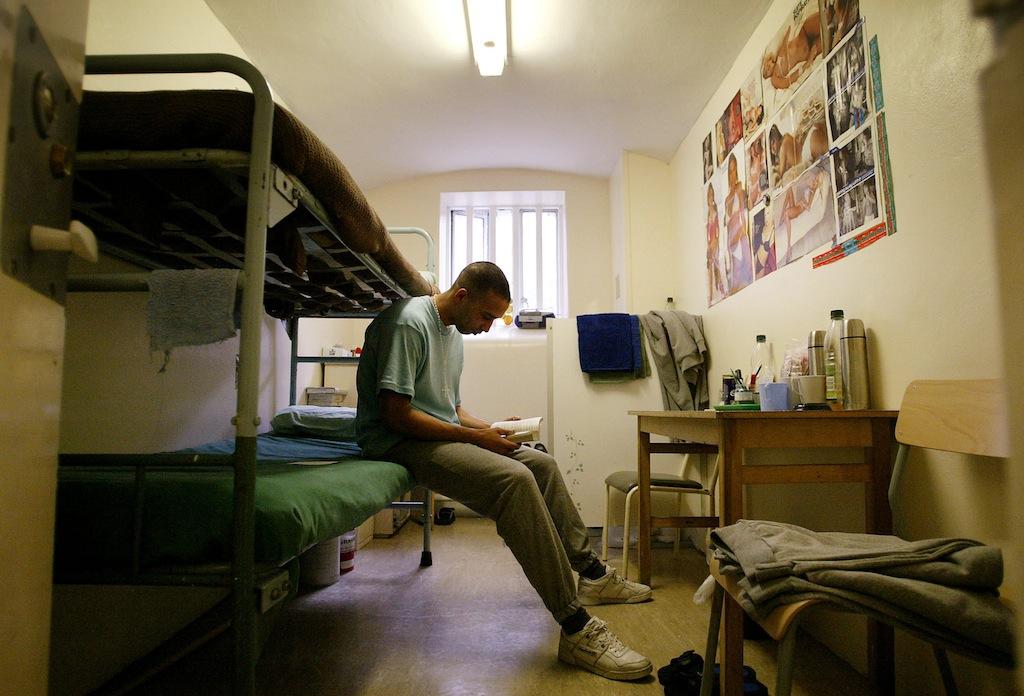Bye bye TV: British prisons crack down on privileges
British prisoners will have to wear a uniform for their first two weeks and will lose automatic right to TVs under a new crackdown on privileges.
LONDON — British prisoners will soon have to start earning privileges, such as the right to watch TV and wear their own clothes, that were considered standard before.
Instead, all convicted male prisoners will wear a uniform for the first two weeks of their sentence. They will also lose automatic access to daytime TV, gym equipment and personal spending money.
The changes were ordered by the Justice Secretary Chris Grayling, who said that incoming prisoners are being treated too lightly.
"It is not right that some prisoners appear to be spending hours languishing in their cells and watching daytime television while the rest of the country goes out to work," Grayling said.
"For too long, there has been an expectation that privileges are an automatic right, given simply as a reward for staying out of trouble."
The changes, which take effect in November, are tweaks to a national policy of prison incentives that has been in place in the UK since 1995. British prisons currently operate on a 'tier' system where there are three levels of privileges – basic, standard and enhanced.
The middle tier allows them to watch TV in their cells, wear their own clothes and have more family visits and access to money than those on the lower tier. Now, prisoners coming into the system are automatically placed into this middle tier.
But from November, all new prisoners will spend their first two weeks in the lower, 'basic' tier and have to earn the right to move up.
The new changes will also ban any "adult" films from being watched on cell TVs. The 4,000 offenders in privately run prisons will also lose access to satellite subscription channels, including premium sports channels.
Sally Knox, whose son was murdered in 2008, told the UK channel ITV that prisoners "should be spending more time in their cell thinking about what they did, and the other thing is there needs to be more education and training. What are we achieving by giving prisoners satellite TV to behave?"
Campaigners for prison reform questioned the need for the new rules.
Frances Crook, of the Howard League for Penal Reform, said the government was ignoring the real problem in front of them.
"The fact that the prison population has doubled in the past 20 years has left prisons overcrowded and staff overstretched, with little choice but to lock people up in their cells all day with nothing to do," Crook said.
"There have been numerous inspectorate reports published recently which have found prisons struggling to offer any purposeful activity within their walls. As their budgets continue to be squeezed, this problem will only get worse."
In 2008, Alison Leibling of the Institute of Criminology at Cambridge University published a paper evaluating the effects of the IEP program, then 13 years old.
“An evaluation of the policy of incentives and earned privileges (IEP) in prisons in England and Wales found mainly negative effects on prisoner behaviour and perceptions of fairness and relationships with staff,” she wrote. When the new regulations were introduced in maximum security prisons, prisoners “became angry, resistant and unusually collective in their protests about the policy.”
“Do you want to reduce crime, or do you just want to be vicious to prisoners for no particular reason?” said Ben Gunn, who served more than 30 years for murder, to ITV. "If we have money to spend on uniforms for the first two weeks that's 85,000 uniforms, that's not cheap, why not invest that money in work, and training, or education?"
Every day, reporters and producers at The World are hard at work bringing you human-centered news from across the globe. But we can’t do it without you. We need your support to ensure we can continue this work for another year.
Make a gift today, and you’ll help us unlock a matching gift of $67,000!
